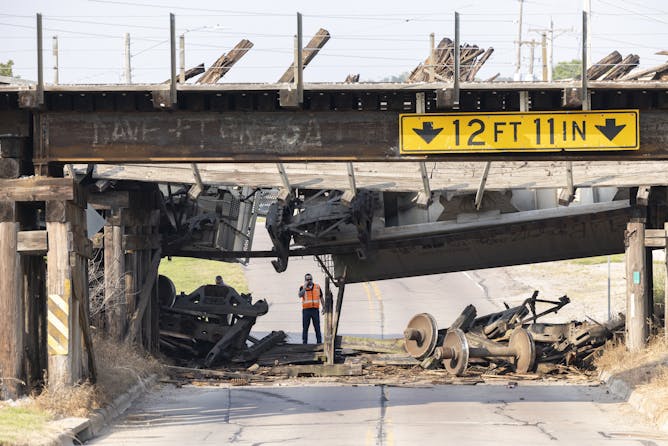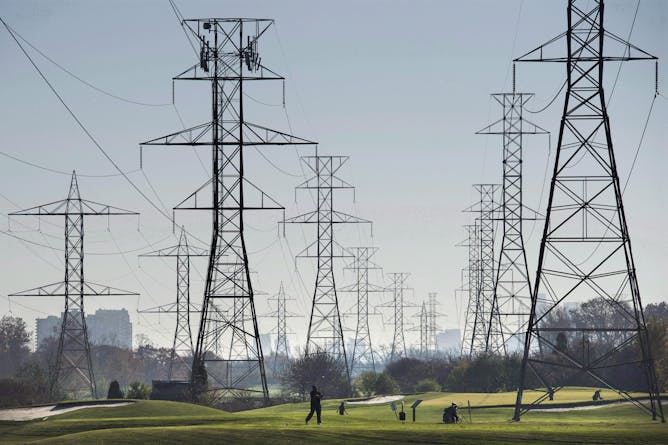|
According to the World Health Organization, around 16 per cent of the world’s population, just over one billion people, are living with a disability. The reality is that most, if not all of us, will experience a disability at some point in our lives — whether individually or through providing support and care to a loved one.
Canada has set an ambitious goal to become a barrier-free society by 2040. However, Canada’s governments have yet to implement a coherent strategy to achieve an inclusive society. Canadians with disabilities continue to contend with pervasive misconceptions, flawed income support systems and inadequate enforcement of the regulations meant to protect them.
Today, in The Conversation Canada, Sunil Johal from the University of Toronto outlines how Canada can be more inclusive of people with disabilities. Many people with disabilities are living with conditions that fluctuate over time. Governments must bear those people in mind when making policies regarding disabilities.
Also today:
All the best,
|

Canada has an extensive policy architecture in place to provide support for people with disabilities, yet progress on disability inclusion remains elusive.
(Shutterstock)
Sunil Johal, University of Toronto
Many people with disabilities in Canada still face systemic barriers. Governments must take action to reduce inequities.
|

Disasters affect all, human and non-human alike. It is imperative that we consider the harms to non-human life and ecosystems as both a moral obligation and a realistic effort to preserve the ecosystem services upon which we all rely.
(Jesse Brothers/Sioux City Journal via AP)
Bridget Nicholls, University of Windsor; Amy Fitzgerald, University of Windsor; Jennifer Halliday, University of Windsor
Focusing solely on humans at the expense of other life in the aftermath of train derailments limits the effectiveness of our disaster response management.
|

Striking port workers from the International Longshore and Warehouse Union Canada gather at a rally in Vancouver in July 2023.
THE CANADIAN PRESS/Ethan Cairns
Alison Braley-Rattai, Brock University; Larry Savage, Brock University
When it comes to picket lines, courts aim to uphold civil and property rights without jeopardizing workers’ freedom of expression.
|

Electricity prices in Alberta hit a record high in July, more than doubling from last year.
THE CANADIAN PRESS/Darren Calabrese
Junaid B. Jahangir, MacEwan University
The Alberta government has a vital role to play in preventing low-income Albertans from being exploited by the deregulated electricity market.
|

A fundamental component for training health-care professionals is interacting with patients and families.
(Shutterstock)
Lisa McKendrick Calder, MacEwan University; Eleftheria Laios, Queen's University, Ontario; Kerry Wilbur, University of British Columbia; Lorelli Nowell, University of Calgary; Whitney Lucas Molitor, University of South Dakota
Each encounter that health-care students have with patients and families helps them understand real-world patient needs. That means all Canadians have a role in educating future health-care providers.
|

En matière d’assistance sociale, le Québec n’est pas différent des autres provinces. Ses programmes sont insuffisants pour sortir de la pauvreté.
(Shutterstock)
Samuel Ragot, McGill University
En matière d’assistance sociale, le Québec n’est pas différent des autres provinces. Ses programmes sont insuffisants pour sortir de la pauvreté. Et ils sont également punitifs et contraignants.
|
Arts
|
-
Deborah Shaw, University of Portsmouth
As a passionate and partisan defender of Allende’s socialism, Guzmán’s films celebrate popular protest and struggles for democracy and equality in Chile.
|
|
Education
|
-
Mónica Rodríguez Enríquez, Universidade de Vigo
The number of parents giving money on demand instead of pay has been increasing in recent times. Does it help children to better understand “the value of money”?
|
|
|
|